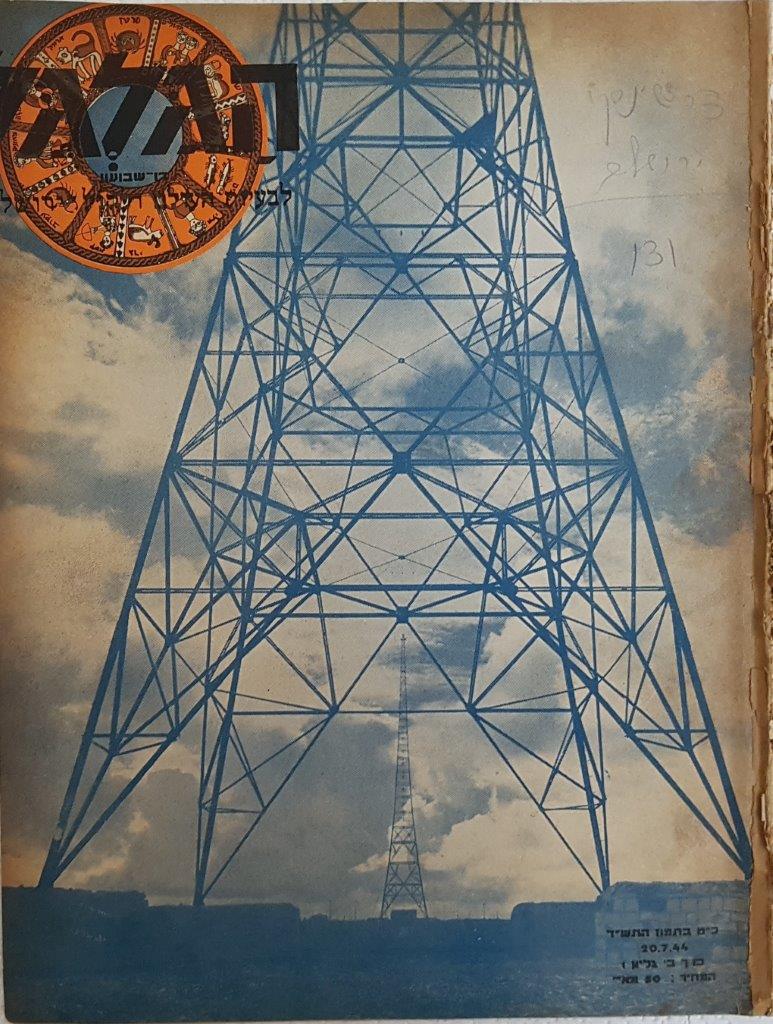
Digitizing History: Palestine Broadcasting Service, 1936-1948
(under Construction)
under construction
MUSIC: The Studios, Pre-Recordings and Outside Broadcasts
"There are thousands of people in Palestine who have a natural love of music, but who experience difficulty in finding the means, whereby they may enjoy the many pleasures that music gives. The Broadcasting service will endeavour to fill this need, and stimulate musical life in Palestine, so that we may see both Oriental and Western music grow in strength, side by side, each true to its own tradition..." High Commissioner, Arthur Wauchope said these words in his inaugural address on opening the PBS transmitters in 1936.
Crawford B. McNair
One of the early directors of PBS was Crawford B. McNair, not only was he seconded from the BBC, he was also a professional conductor of the BBC Northern Region Orchestra.
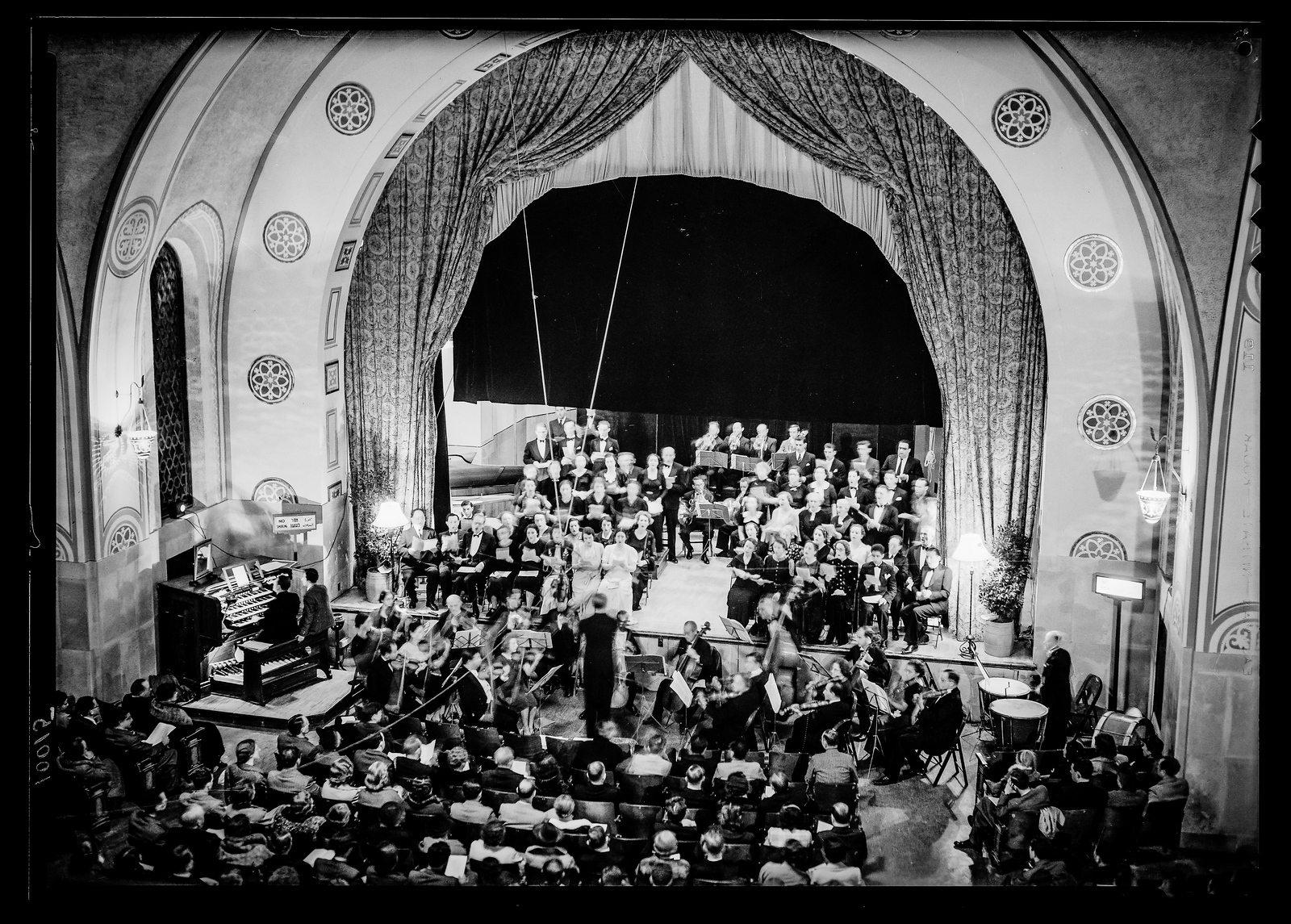
Crawford McNair, Director of Programmes of the Palestine Broadcasting Service (PBS), conducting the PBS Choral Society and the PBS Orchestra, at the inaugural concert of the Choral Society, at the YMCA, Jerusalem, 1938.
"Although Crawford McNair, Director of Programmes of the PBS, appears in this picture as the conductor of the newly-formed PBS Choral Society, he is equally at home in pantomime and variety productions and in dramatic shows. He received his early training in radio in London and is the composer of the music for Geoffrey Bridson's 'Dove Days' which was given a repeat performance on the National Programme in London a short time ago."
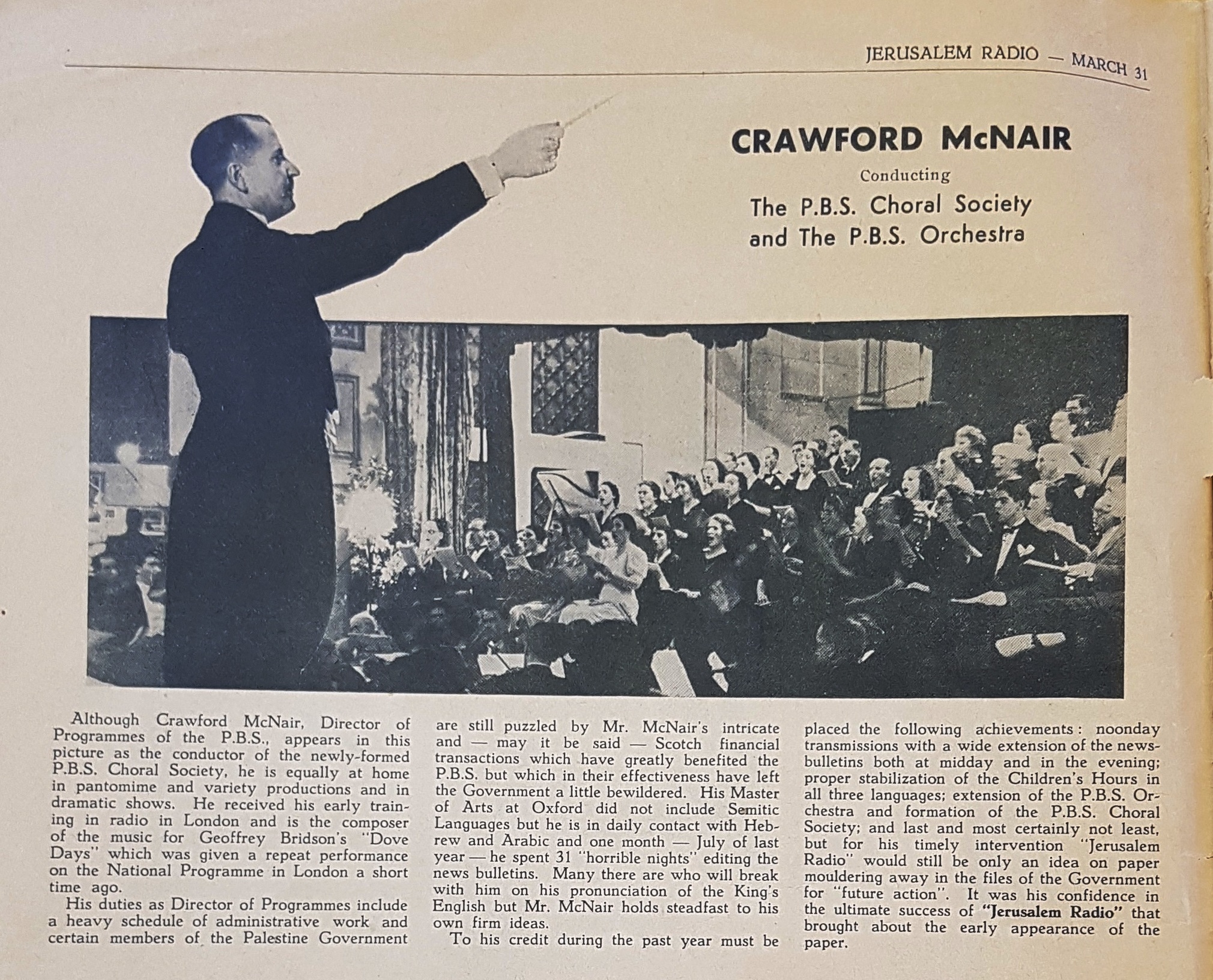
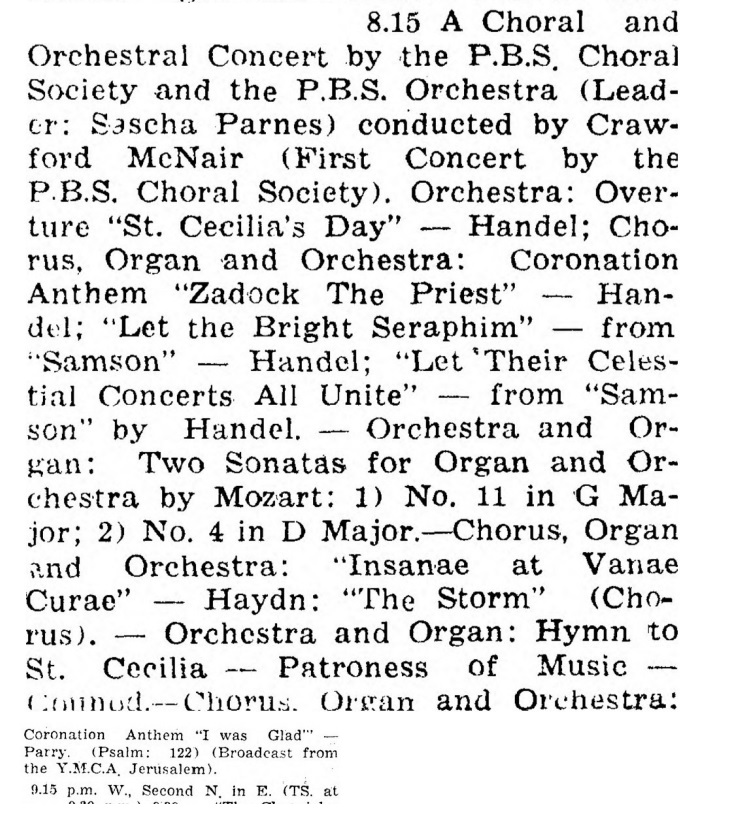
Crawford McNair conducting the inaugural concert of the PBS Choral Society and the PBS Orchestra, YMCA, November 22, 1938. Broadcast live on radio.
" His duties as Director of programmes include a heavy schedule of administrative work and certain members of the Palestine Government are still puzzled by McNair's intricate and - may it be said - Scotch financial transactions which have greatly benefited the PBS, but which in their effectiveness have tleft the government a little bewildered. His Master of Arts at Oxford did not include Semitic Languages but he is in daily contact with Hebrew and Arabic and one month - July of last year [1938] - he spent 31 "horrible nights" editing the news bulletins. Many there are who will break with him on his pronunciation of the King"s English but Mr. McNair holds steadfast to his own firm ideas."
"To his credit during the past year must be placed the following achievement: noonday transmissions with a wide extension of the news bulletins both at midday and in the evening; proper stabilization of the Children's Hours in all three languages; extension of the PBS Orchestra and the formation of the of the PBS Choral Society; and last and most certainly not least, but for his timely intervention "Jerusalem Radio" would still be only an idea on paper mouldering away in the files of Government for "future action". It was his confidence in the the ultimate success of "Jerusalem Radio" that brought about the early appearance of the paper."
One of the most prominent guests he hosted in Palestine was the conductor, Sir Malcolm Sargent, then just Dr. Malcolm Sargent. He traveled to Palestine three years in a row 1937-1939, while it was still possible to travel there safely by air, before the war (this period is now known as the period of the Arab Riots, 1936-1939). In May 9, 1937, Dr. Malcolm Sargent gave a 15 minute PBS radio broadcast talk on Elgar. A year later, Friday, May 13, 1938 , he gave a 10 minute radio broadcast talk on his trip to Palestine. In the days before radio, for example, giving a talk or lecture from a stage, was straight forward. There was a direct connection between the guest speaker and his/her audience. But not so radio. Radio was a new technology that had to be learned from scratch. The broadcaster or guest had no idea if anyone was listening to them at all. The message could fall on deaf ears. They had to find out who was listening to them and what the thoughts on the programs were. They developed many creative ways to reach the audience. There were many routes to reaching a wide an audience as possible.
COMMUNICATING WITH TARGET AUDIENCE
The PBS needed to learn who are the current local leaders, influencers, the so-called "movers and shakers". To be in regular contact with them, open conversations. Learn from them, hear what they have to say and report back the issues of the day from their perspective. These links were also communication lines to pass on the message or messages that the British Government wanted to relay to local leaders, political, social, economic and commercial. How did they identify current leaders and potential future local leaders? What methods were used to bring them into PBS's orbit? Were there any rivalry among the local leaders that they could identify?
The PBS from the outset partnered with the Vaad Leumi, the local governance of the Jewish Yishuv of Palestine. They made similar outreach to the Arab elites. This way PBS would be in regular contact with the leading personalities of the Yishuv, movers and shakers, "influencers" as they would be called today.
There were many barriers to communication: language, culture, religion, and geography. One way of crossing these barriers was thought to be music. In his inaugural address on opening the PBS transmitters in 1936, the High Commissioner, Arthur Wauchope said:
"There are thousands of people in Palestine who have a natural love of music, but who experience difficulty in finding the means, whereby they may enjoy the many pleasures that music gives. The Broadcasting service will endeavour to fill this need, and stimulate musical life in Palestine, so that we may see both Oriental and Western music grow in strength, side by side, each true to its own tradition..."
MUSIC PROGRAMS, presented by Sydney Seal, Gershon Swet, Jochebed Dostrovsky and Hadassah Sherman
There was a lot of planning that went into choosing the music that was to be broadcast over the radio. Contracts had to be written up and signed with artists, sometimes for individual one-off programs, other times, series of programs with similar themes. When should they use commercial recorded music, not to mention keeping track of royalties that needed to be paid, and other general administrative work. This planning made it possible to have a weekly review series of programs highlighting the music to be broadcast that week. One of the earliest regular series was entitled "This week's Music". It was given a five to ten-minute slot on Sundays. It was presented in English by Sydney Seal (1898-1959), an English pianist, and director of the Jerusalem School of Music.
The first program of "This Week's Music" series in English starting on August 9, 1936. the last broadcast of this series in English was February 20, 1938. However, a week later, Febrauary 27, 1938, Seal presented a new weekly series entitled "Music and Musicians." This lasted for about 14 broadcasts and ended June 27, 1938. From all accounts Sydney Seal was popular for the listeners, and a second series of "This Week's Music" was started on April 22, 1939, ended a year later with the last broadcast on Sunday, April 28, 1940. Seal was still popular and gave regular recitals and or talks until he returned with a new weekly series of "illustrative talks on British Music" entitled "From Harmony to Harmony" which started on Sunday, January 11, 1942, the twelfth and last broadcast in this series was heard on Sunday, June 28, 1942. But once again Seal, still popular with the public, and presumably with security clearance, World war Two was still in full swing, he was back on the radio with recitals and talks on an adhoc nature.
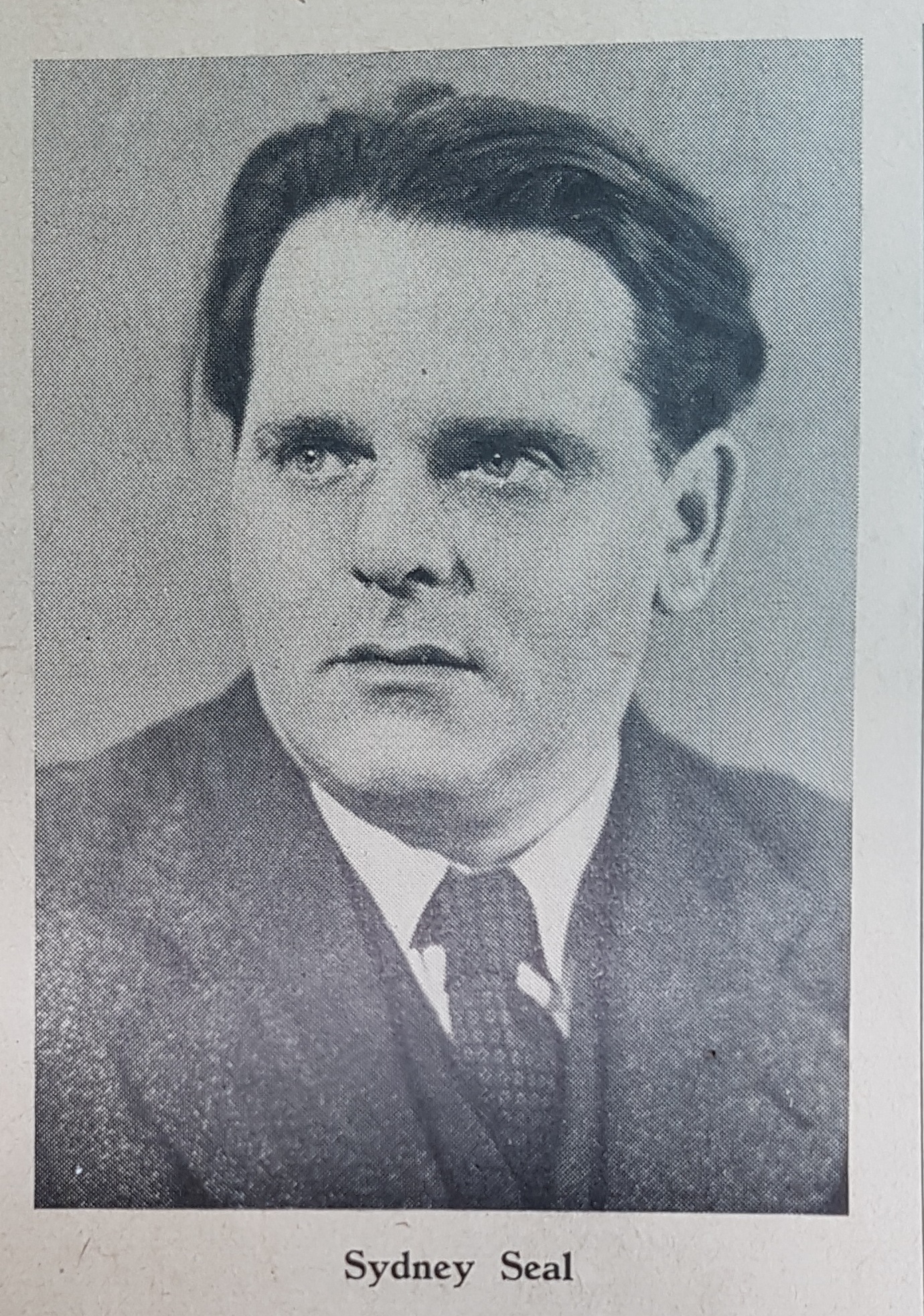
|
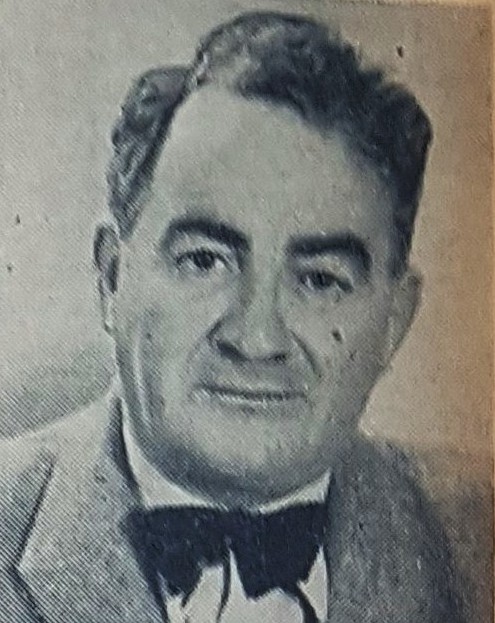
|
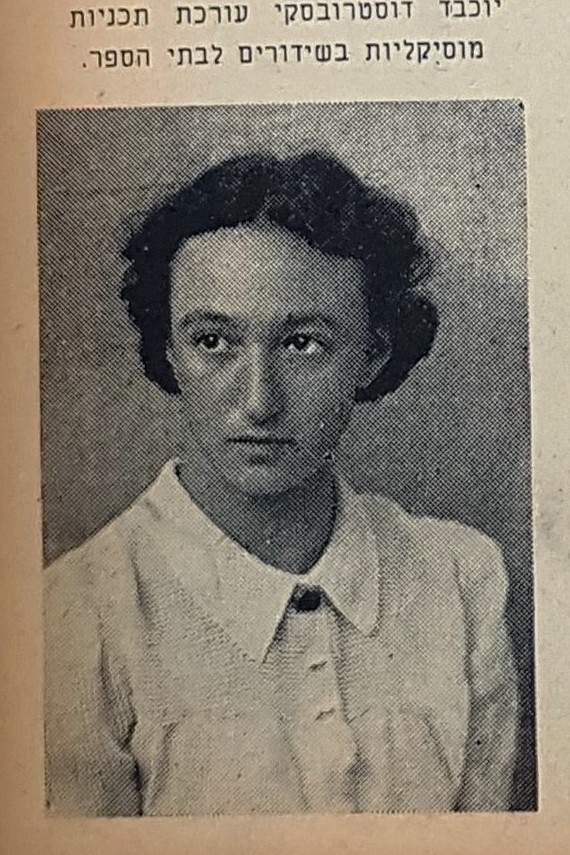
|
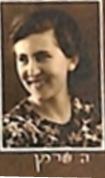
|
| Sydney Seal. | Gershon Swet | Jocheved Dostrovsky | Hadassah Sherman |
There was a parallel program in Hebrew, presented by Herman Swet (1893-1968), Swet later changed his name to Gershon Swet. Swet was a journalist for the Haaretz newspaper, based in Jerusalem. He penned a regular column called Radio Corner ("Pinat HaRadio"). He also presented the Hebrew version of the weekly program "This Week's Music", which was aired over the radio every Sunday from start of the PBS broadcasting in 1936. He focused on music and cantorial music, among other genres. This series was also presented by Jocheved Dostrovsky, from the end of December 1937. Unfortunately, various spellings of her name make it difficult to track her online. Her name could be spelled Yocheved and/or Yochewed and/or Dostrovsky / Dostrovski. For more on Jocheved Dostrovsky see below.
The PBS set up programs that targeted schools, the home, and youth, among others.
PBS BROADCASTING MUSIC TO SCHOOLS
Friday, February 9, 1940 was an historical landmark day for the PBS, when in conjunction with the Palestine Conservetoire of Music, they facilitated for the first time in Palestine's history, musical broadcasts to school classes "The first experiment of this kind will be made today when a programme of string music will be broadcast for Jewish schools, between 1:00 p.m. and 1:30 p.m.
The programme includes a lecture by Mrs. Dostrovsky, a vocal quartet (Mrs. Rose Sander-Sternberg, Mrs. Anna Hirsch-Fellheimer, Mr. Noe and Mr. Lehman); a Paganini Etude played by Mr. Fenyvesz; a Schubert composition for viola played by Mr. Jocoby; a folksong by Stutchevsky played by Mrs. Thelma Yellin (cello) , St. Saens "Elephant", Mr. Meisels, double bass); Mendelssohn's Canzonetta (Pupil's String Quartet of the Palestine Conservatoire) and Mozart's Divertimento (String Orchestra of the Palestine Conseratoire, coducted by Mr. Gruenthal).
The concert, which will be given in the Hall of the General Labour Federation, Jerusalem, will be open for an audience of 450 pupils from the upper forms and will be continued for half an hour after the end of the transmission, i.e. until 2:00 p.m."
(Source: Palestine Post, Friday, February 9, 1940, page 6)
Despite the article in the Palestine Post, the wireless schedule for that day in the Palestine Post completely missed out the broadcast and started at the regular broadcasting hour of 1:30 am. Davar Newspaper also missed it out from the schedule. Haaretz newspaper, to its credit, listed the broadcast in the schedule.
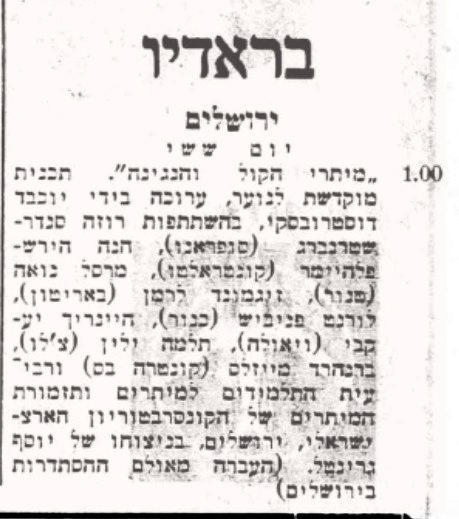
Radio Schedule: Haaretz, Friday, February 9, 1940, page 6
The idea was that this was to be the start of a series of monthly programs, held on the first of the Hebrew month. Accompanying each program, was a 16-page pamphlet, entitled "Tzililim" (Musical notes), was published (initially priced at 10 mils) with background on the concert itself. This pamphlet would be sold to an even wider listening radio audience.
As you can see below it also listed the schedule on page 1.
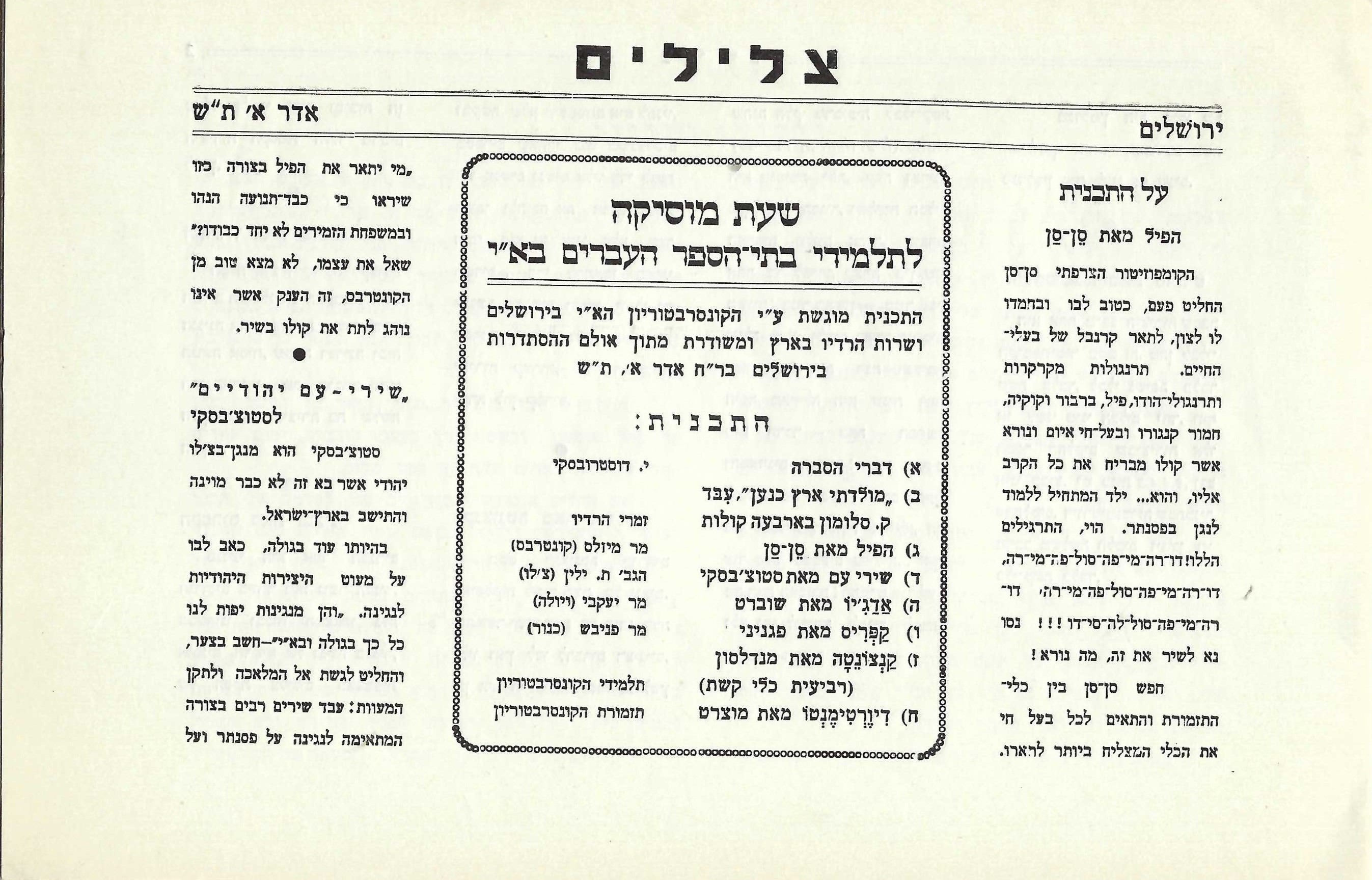
That was to be the pattern for the monthly pamphlets. Unfortunately, there was no program the following month (the Hebrew month of Adar Bet). Nor was there a program the month following that (the Hebrew month of Nissan). But the editors of the magazine, Dostrovsky and Riklis, thought it wise to produce a double pamphlet, just to keep the momentum up.
There was clearly problems in this publications and in the broadcasts. It isn't clear if PBS continued these musical broadcasts after the first one. The pamphlet continued to be published, though in a very irregular way, till around July 1941.
Number 1: Adar Aleph (February 1940)
Numbers 2-3 (double issue): Adar Bet- Nissan (April 1940?)
Number 4: Shevat (March 1941)
Number 5: Nissan (June 1941)
Number 6: Sivan (July 1941?)
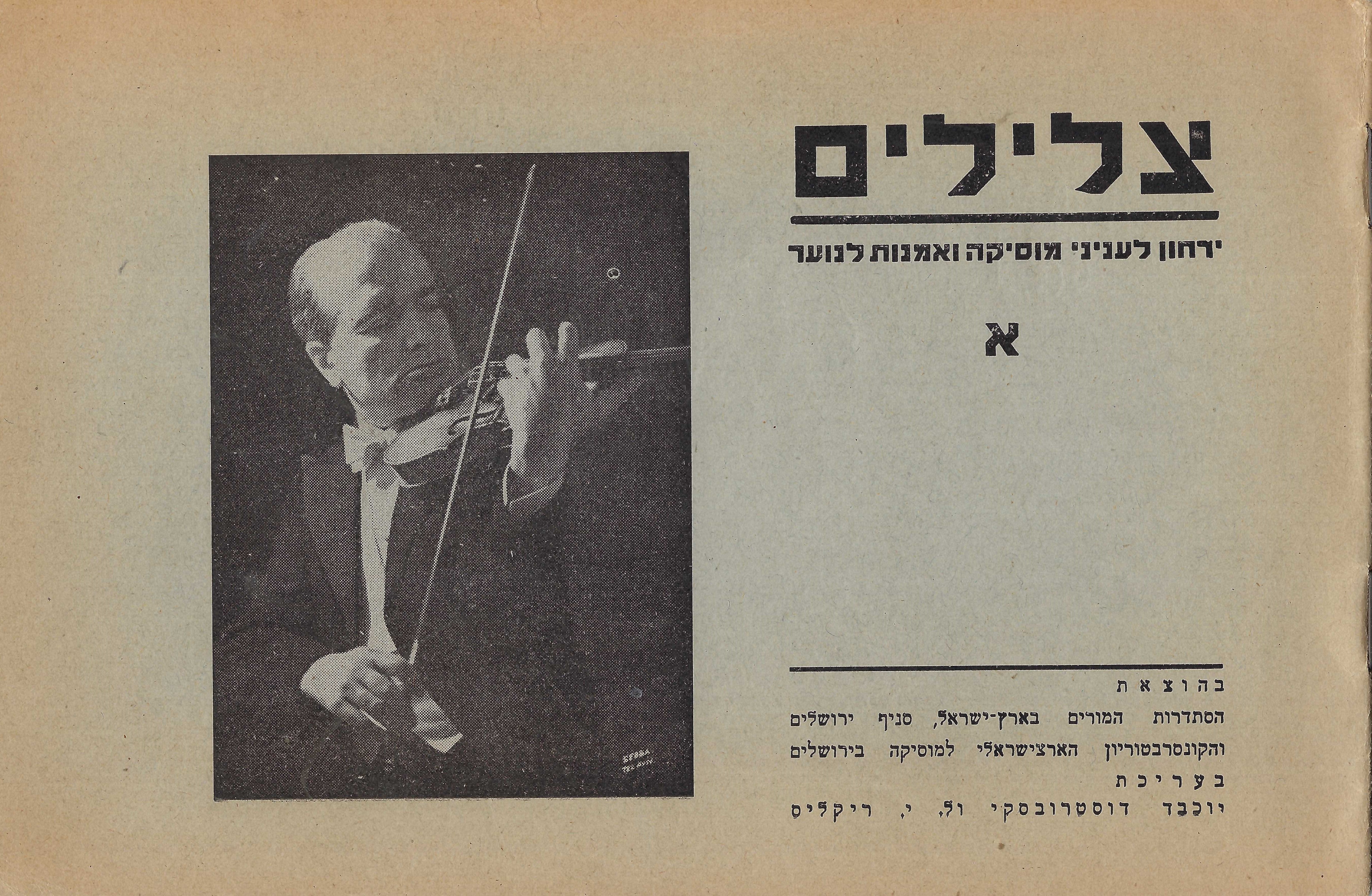
Jocheved Dostrovsky was clearly at home with the idea of broadcasting music to schools, not just listening to the music but music education in general. Music appreciation, it included teaching young minds about the instruments in the orchestra the lives of the composers and different types of music that was around such as music and dance.
Another young music teacher PBS had in their cross-hairs was Hadassah Sherman. She was a music teacher at the Gymnasia Herzliya, Tel Aviv. She made her debut, as it were, in the first pamphlet of "Tzililim"with aA short article on the Italian violinist, Niccolo Paganini.
The First Gramophone Club: Music Appreciation Club (Niklota V'Naskitah) נקלוטה ונסכיתה
In the second pamphlet Hadassah Sherman introduced her readers to an innovative program that she apparently initiated at a school she taught music in. Although she didn't name the school in the pamphlet, it was most likely the Herzliya Gymnasia, Tel Aviv. This was a music appreciation club, with the students, "members" listening to gramophone records borrowed from their parents, relatives, even renting gramophones from music shops for a few hours at a time, at a very low cost. She mentioned that the members imposed on themselves a small fee so that they could pay for these borrowed gramophone records. It was a low budget way to develop a music appreciation club. The students are not just listening and learning from a random selection of recordings, but focuses on specific subjects that either she or her students have chosen in advance.
The first article introduced the readers to the concept. The subject for discussion was the gramophone records of Joseph Haydn. Sherman lists the following recordings:
- Haydn Serenade Virtuoso String Quartet: HMV B 3137
- Haydn Trio HMV DA 895/6
- Haydn's Clock Symphony Second Movement (HMV D1669)
and Third Movement (HMV D1670)
- Haydn Symphony No 45 ''Farewell Symphony'' HMV DA 1737
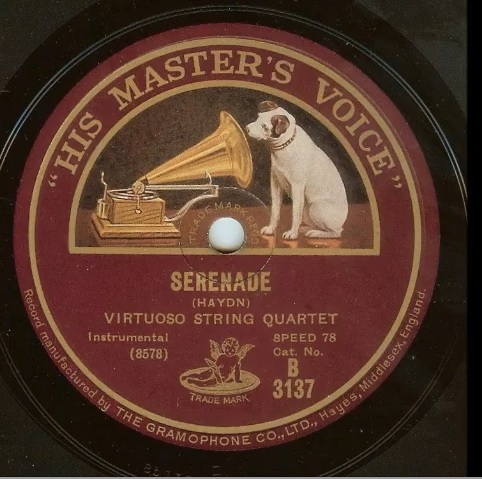
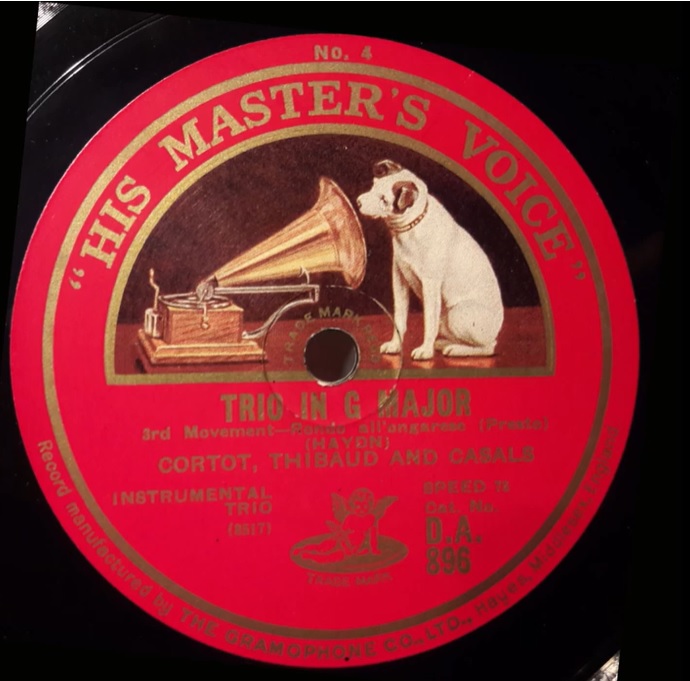
The next pamphlet her gramophone club focused on was recordings of Jewish music, in particular: (1) the compositions of Ernest Bloch; (2) The melodies of Joseph Achron, violinist and composer; and (3) Yoel Engel's music to the play "The Dybbuk":
- Nigun from Baal Shem, by Ernest Bloch (Col D 1557)
- Hebrew Melody, by Josph Achron (Col 9761)
- Joel Engel , Incidental music for 'The Dybbuk' (Odeon 0-2309)
The third pamphlet her music appreciation club focused on the compositions of Wolfgang Amadeus Mozart:
- Overture to Marriage of Figaro (Col. D12 24)
- Part 2 for Concert for Clarinet in A major K.622 (Col D B 834)
- Symphony in E flat major (Col D B 2260)
- Serenade (Col C 1655/1666)
The fourth and last article subject matter of the gramophone club was chosen at popular demand of the members. A look, not at the well-known names of composers, but at the "anonymous" composers of the Hebrew folk songs, for example the composers of "Am Yisrael Chai", "Hava Nagilah", etc. :
- Pier Gint (HMV D B 534 or HMV D B 1278)
- (HMV D B 1103)
-Eliyahu Hanavi (Col BC 103)
-Song of the Camel (Gamal Gamali )(Col DF 641)
At the end of the article, she mentioned that their club had decided that over the summer vacation the students would try and collect as many examples of Jewish music from the diaspora and Palestine as possible, and create a short history of Jewish folk music. She left the readers with a parting challenge: Why not do something similar in your communities?
Jumping to 1943, one of the more intriguing radio broadcasts Jochewed Dostrovsky was involved in for the PBS was the one entitled "Alice in Orchestraland". No prizes here: it was very loosely based on Lewis Carroll's "Alice in Wonderland". This was a series of five broadcasts, presented by Jochebed Dostrovsky, each program 30 minutes long. Unfortunately, nothing is left of the Hebrew version other than the following titles of the programs. Here is the list of broadcasts put together as it appeared in radio schedules, every two weeks:
28 June, 1943 - Part 1: Alice in Orchestra Land (introduction to orchestra?)
12 July, 1943 - Part 2: Alice in Fiddladelphia
28 July, 1943 - Part 3: Alice in Brassy Dale
16 August, 1943 - Part 4: Alice in Drumborough
30 August, 1943 - Part 5: Alice at the Carnival of the Animals
It was a radio broadcast adapted from a 171-page book by American composer and radio producer Ernest La Prade (1889–1969), entitled "Alice in Orchestralia", published in 1925. Its purpose was to educate children in the make-up of an orchestra. Inspired by Lewis Carroll's "Alice in Wonderland", in this story Alice, as wikipedia states: "...visits a symphony concert and, through the portal of a tuba's bell, enters Orchestralia, where a bass viol escorts her and introduces her to a variety of animated musical instruments. In 1934 it was re-issued in a second edition with the title Alice in Orchestra Land ... Alice in Orchestralia was also the title of an NBC radio program broadcast on Friday afternoons in the 1930s. Alice in Orchestralia was also issued as a dramatization in an album of three 78 rpm records issued on the Records of Knowledge label (ROK-20) by the Rexford Corp. of New York. Music composed by Don Gillis. Performed by the Rexford Symphony, Ernest La Prada (author of the book), conducting. The cast: Gene Hamilton (narrator), Celia Rotelle (Alice), Leonard Fabian (bass viol), Robert Weil (saxophone), mother (Ann Gerry). Album cover states "Produced and directed under the personal supervision of Nanette Guilford, Metropolitan Opera Star." Issue date of album is unknown, probably in the 1930s or early 1940s."
Wikipedia has the date wrong for this recording. In the first place the record is in vinyl (plastic) which suggests a later date than if the recording was a 78 rpm shellac-made recording.
The New York Times has a review of the recording dated, May 2, 1954, Drama Section, page 10:
FOR YOUNG LISTENERS: 'Alice in Orchestralia' Dramatized on Disks, by John Briggs,May 2, 1954
ERNEST LA PRADE'S charming tale, Alice in Orchestralia, now can be heard in a dramatization brought out by Records of Knowledge (three ten-inch 78 rpm disks). The purpose of "Alice," like that of "Tubby the Tuba” and "Rusty in Orchestraville," is entertainment plus music appreciation. Orchestral instruments are introduced one by one as characters in the story. At the conclusion of the tale, the young listener may be assumed to have retained, along with the story, some recollection of how the instruments sound. "Alice" is full of touches which can be described as fanciful. When Alice, the heroine, arrives at Fiddladelphia, the capital of Orchestralia, she is astonished to find that the violins, violas, 'cellos and bass viols are able to talk. Even greater is her amazement when each instrument goes to a cupboard and leads out a man dressed in a tail coat and striped trousers. Quickly the bass viol reassures Alice: "They're not human beings, they're only musicians!" He adds that in other countries musicians keep their instruments in cases when not performing on them; here it is the other way around. Which Alice concedes is fair enough. Guest of Orchestra Alice then visits Panapolis, and is introduced to the various members of the woodwind family; then, in Brassydale, meets the brasses. The extraordinary vividness of these impressions is not diminished by Alice's eventual discovery that she has fallen asleep at a concert. "She knew [that Orchestralia was real, and [that she could go back there whenever she liked." This pleasant tale is agreeably narrated by Gene Hamilton, with the role of Alice spoken by Celia Rotelle, Leonard Fabian as the Bass Viol, Robert Weil as the Saxophone and Ann Gerry as Alice's mother. The competent and effective musical score is by Don Gillis, who conducts the Rexford Symphony in this recording. The production was supervised by Nanette Guilford... "
The recording is 21 minutes in its enirety. It is most likely that Jochewed Dostrovsky not only didn't have access to this recording at the time of her broadcasts, in 1943, she probably translated into Hebrew and adapted it for radio broadcast directly from the book itself. If she got hold of the British version of the book, its most likely that this was also the work of "public diplomacy" at the PBS.
The British edition of the book, published in 1936, had a foreword by Dr. Malcolm Sargent. Malcolm Sargent was a regular visitor to British Mandatory Palestine, 1936-1939, before WW2, as guest of Crawford McNair, director of the PBS. It's very possible that Jochewed, as a music educator, would have knowledge of the book and could even have met Malcolm Sargent when he came to the PBS studio to record a couple of programs on music appreciation for the PBS. Admittedly that is speculative only. But not impossible.
There was also a translation of the bookin Hebrew that was published, three years after Dostrovsky's broadcasts. Alice in Music note land. (עליסה בארץ הצלילים , תרגום יעקב גל) . Because we don't have a recording of Dostrovsk's broadcasts its impossible to know how far she kept to, or strayed from La Prade's book. Five programs don't fit well into a book of eight chapters. But clearly from the titles of the broadcasts it does look like she kept close enough to the spirit of the book to include Fiddladelphia, Drumsborough, Brassy Dale and the Carnival of the Animals.
If you listen to the record, below, you will see that at the very least there is nothing on 'Alice at the Carnival of the Animals' whatsoever. While La Prade does not have a chapter heading on the "Carnival of the Animals", he does include Saint-Saens' composition in the last chapter in the book - Chapter VIII. A Concert in Orchestra Land - as it is listed as part of the program of the concert under discussion. The concert's program started with the William Tell Overture, by Rossini. This was followed by the second movement of from Beethoven's Sixth Symphony (" the scene by the brook"). Next was Saint Saens musical joke the "Carnival of the Animals". The program included all 14 parts of Saint Saens' Suite :
1. Royal March of the Lion
2. Hens and Roosters
3. Wild Asses
4. Turtles
5. Elephants (dancing a minuet!)
6. Kangaroos
7. The Aquarium
8. People with Long Ears (donkeys)
9. Cuckoo
10. The Bird House
11.Pianists
12. Fossils
13. The Swan
14. Final movement: All the animals together
The concert concluded with the "Waltz of the Flowers", by Tchaikowsky.
Here is the recording in youtube for comparison/contrast.
Music education by record or radio was all the craze in these days. In 1936, Sergei Prokofiev composed Peter and the Wolf. It was originally based on a Russian folk tale, but the idea was that it too was a learning experience for the young listeners. Each character in this musical piece was represented by a different musical instrument of the orchestra and expressed the current soviet values of the times. My guess is that this was enough to convince PBS's musical staff to recreate a Hebrew version of "Alice in Orchestra Land" adapted for radio. Peter and the Wolf certainly stood the ravages of time, whereas who has heard of "Alice in Orchestra Land"? It's Out-Of-Print, and can only be acquired via second-hand or rare bookshops or internet sites that specialize in rare and out-of-print books. There is a full text copy in the Internet Archive.
Also interesting to note that when the broadcast series was concluded. Hagalgal gave a short critical review of it (see Hagalgal volume 1, issue no. 5, September 16, 1943, page 24). The author only used initials for the byline P. M., which I suspect was Peter Munk (spelling?). He doesn't seemed to have been "briefed" about the broadcasts and was quite critical of the content. Or, maybe, he just wanted a reaction from the listeners and/or Hagagal readers. Here is my translation of the short two-paragraph review (via google translate):
'"Alice in the Kingdom of the Musical Instruments" concluded its tour of the world of musical instruments on Monday, the 29th of Av (August 30). The intention of Mrs. Dostrovsky, who presented this program, to give children an idea of the various instruments, aroused interest in the cheerful names of the groups of instruments and the diversity of the story. But the question is, is it necessary to give space in the youth corner to a series of programs, which has just ended with a special broadcast to schools, which lasted a whole year, - especially since the previous broadcasts were quite thorough in terms of describing the instruments and their development. It is dangerous to interpret music by means of only one example, instead of leaving a wide space for the child's imagination, as was the case in the program "Alice in the Carnival of the Animals". Moreover, in the beautiful music of Saint-Saëns, the child of Palestine does not imagine a sad swan at all, since he has never seen a swan in a pond in the countries of the sea.
By the way: "Alice in the Kingdom of the Musical Instruments" is very reminiscent of the book "Alice in Orchestria" (sic) that appeared in America. From this material, which was intended for American children and worked on by Mrs. Dostroevsky for our youth corner, several examples entered the program that are completely foreign to the spirit of the child in our country. It is generally advisable to draw from the pedagogical literature of other nations, but only by thoroughly adapting the material to the special requirements of our country. But "a word in the name of its speaker" is a nice measure, in any case. .. P. M.'
While the PBS Dostrovsky broadcasts was in Hebrew, it really didn't look like they could settle on an overall Hebrew title for the series which seemed to change from week to week, at least in the program schedules that appeared in the newspapers. One week it was known as : אליזה בעולם התזמורת another as עליזה בממלכת כלי הזמר. The Hebrew language, like a volcanic eruption on planet Earth, was still evolving it seems.
Here are the chapter titles of the 1934 British edition :
Foreword, by Dr. Malcolm Sargent
Chapter I. The Brass Tunnel
Chapter II. A Strange Journey
Chapter III. A Topsy-Turvy Rehearsal
Chapter IV. A Quartet out of Tune
Chapter V. A Tea Party in Panopolis
Chapter VI. The Brassydale Band
Chapter VII. Alice Inspects the Artillery
Chapter VIII. A Concert in Orchestra Land
Appendix
The Orchestra
The Strings
The Wood-Wind
The Brasses
The Percussion Instruments
The Orchestra and its Builders
From 22 October 1943 she presented another series of musical programs entitled "Melodies and their Stories" It included episode on : Peer Gynt - Grieg.
Yet another special broadcast to Hebrew schools was entitled "From Handel to Schubert". It included episodes on Wolgang Amadeus Mozart; Orpheus - Gluck; The Nut-Cracker Suite - Tchaikovsky; Egmondt - Beethoven; among others.
Background summary to the series "From Handel to Schubert" to help teacher and students as a visual aid to the program, early form of multimedia presentation, if you like, can be found in the pamphlet "Listen and Learn" (Hasket V' Haskel) January to March 1944, pages 16-19. See photos below:
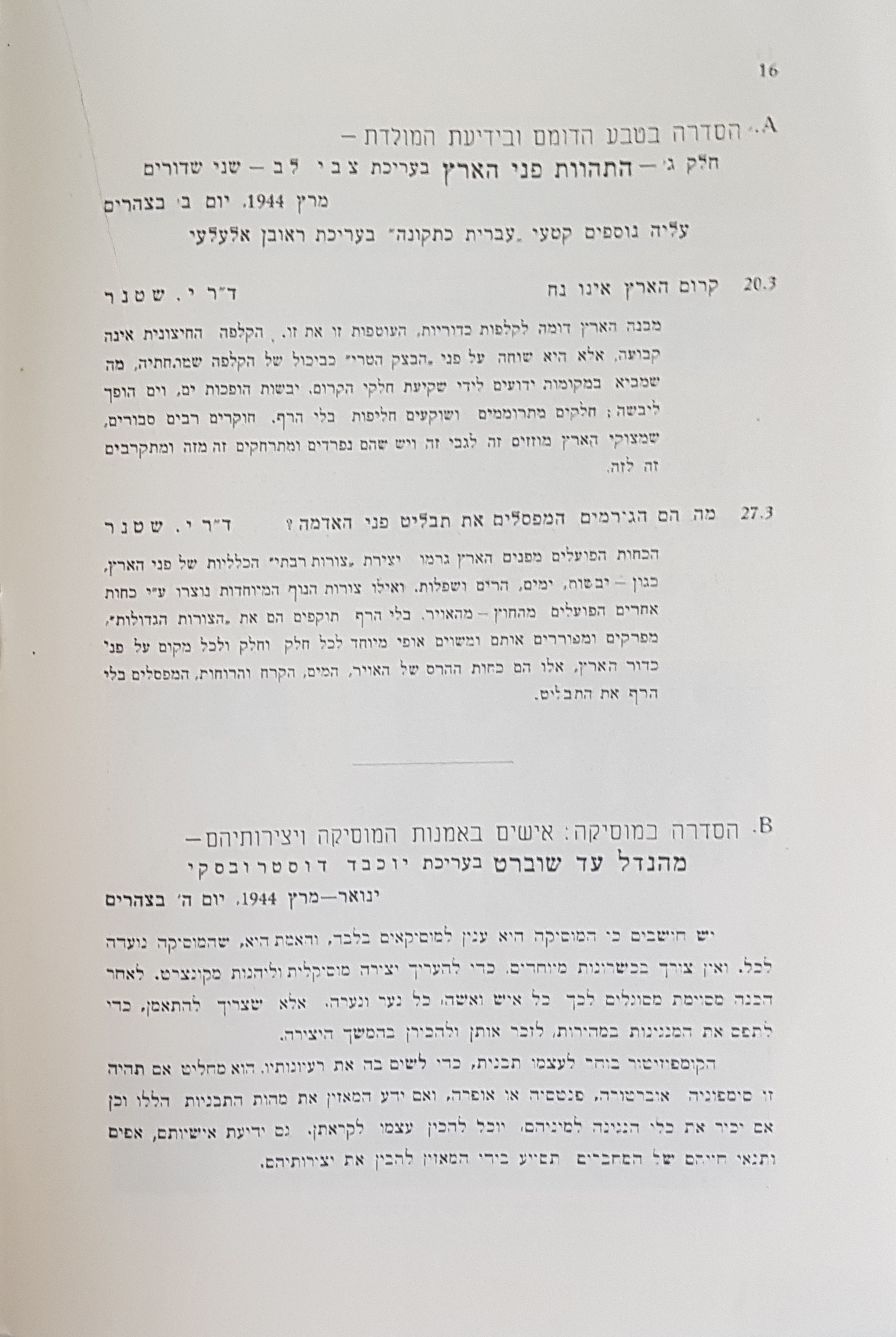
|
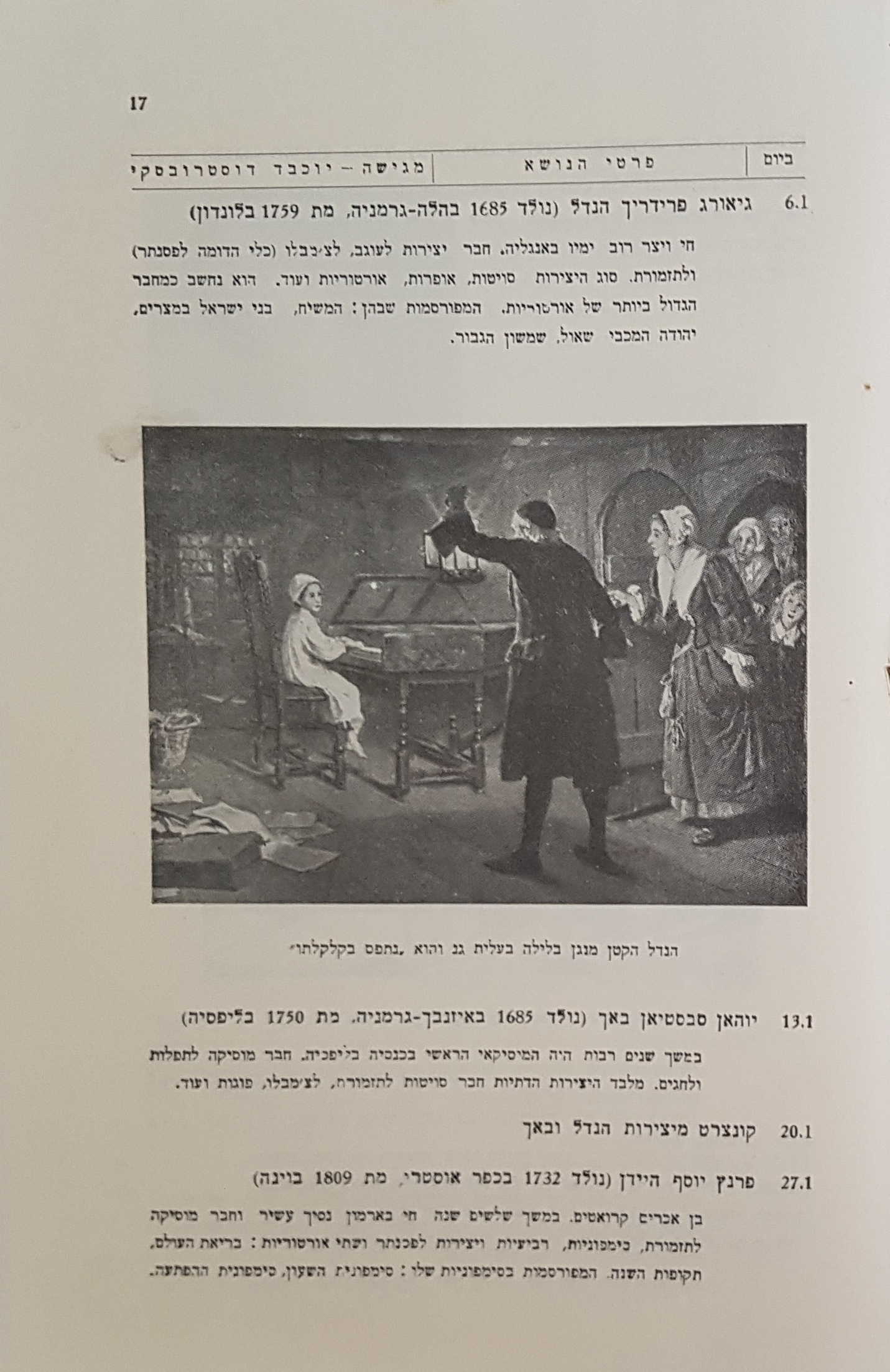
|
|
Hasket V' Haskel ("Listen and Learn") January- March 1944, page 16.
|
Hasket V' Haskel ("Listen and Learn") January- March 1944, page 17.
|
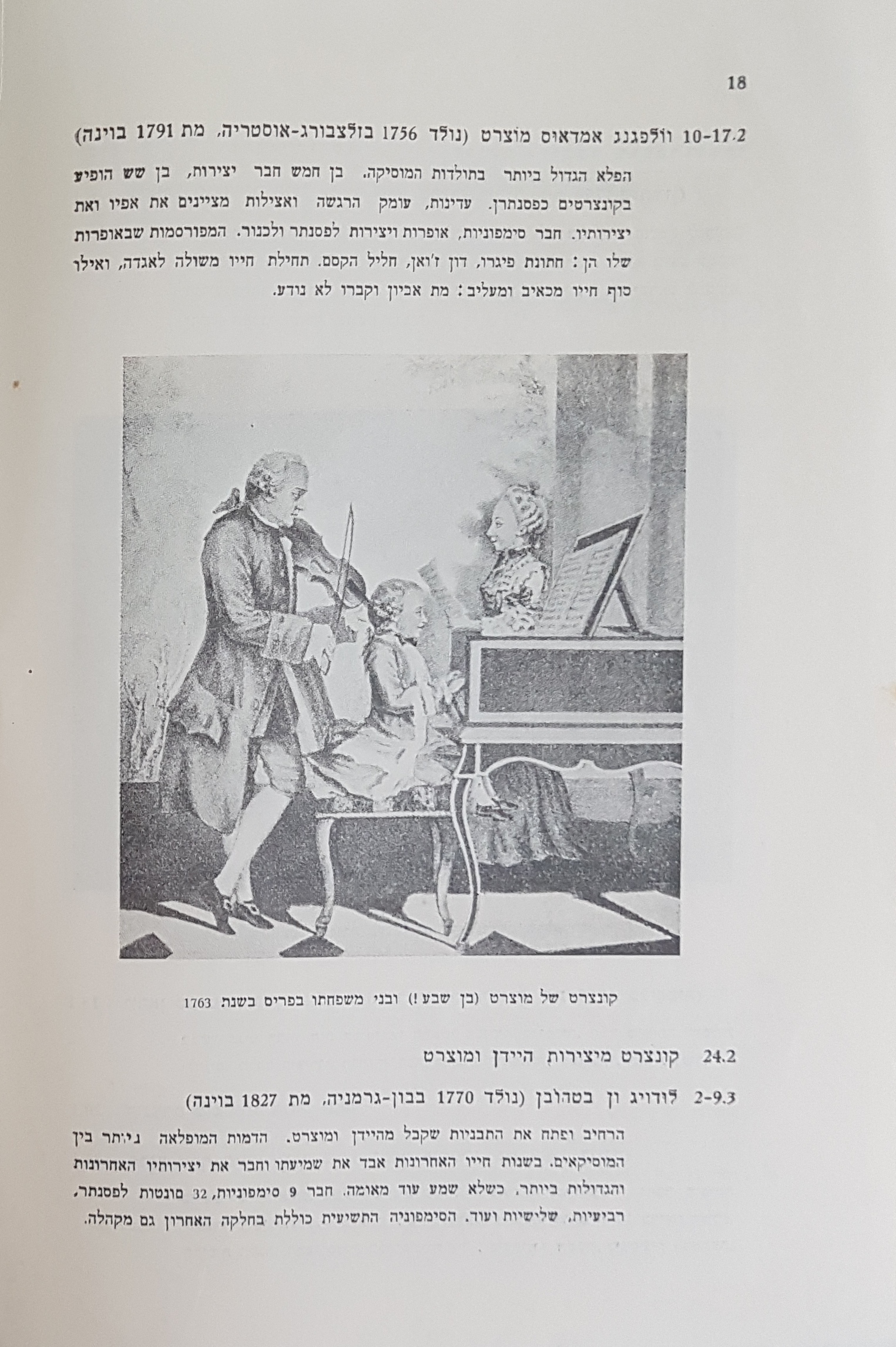
|
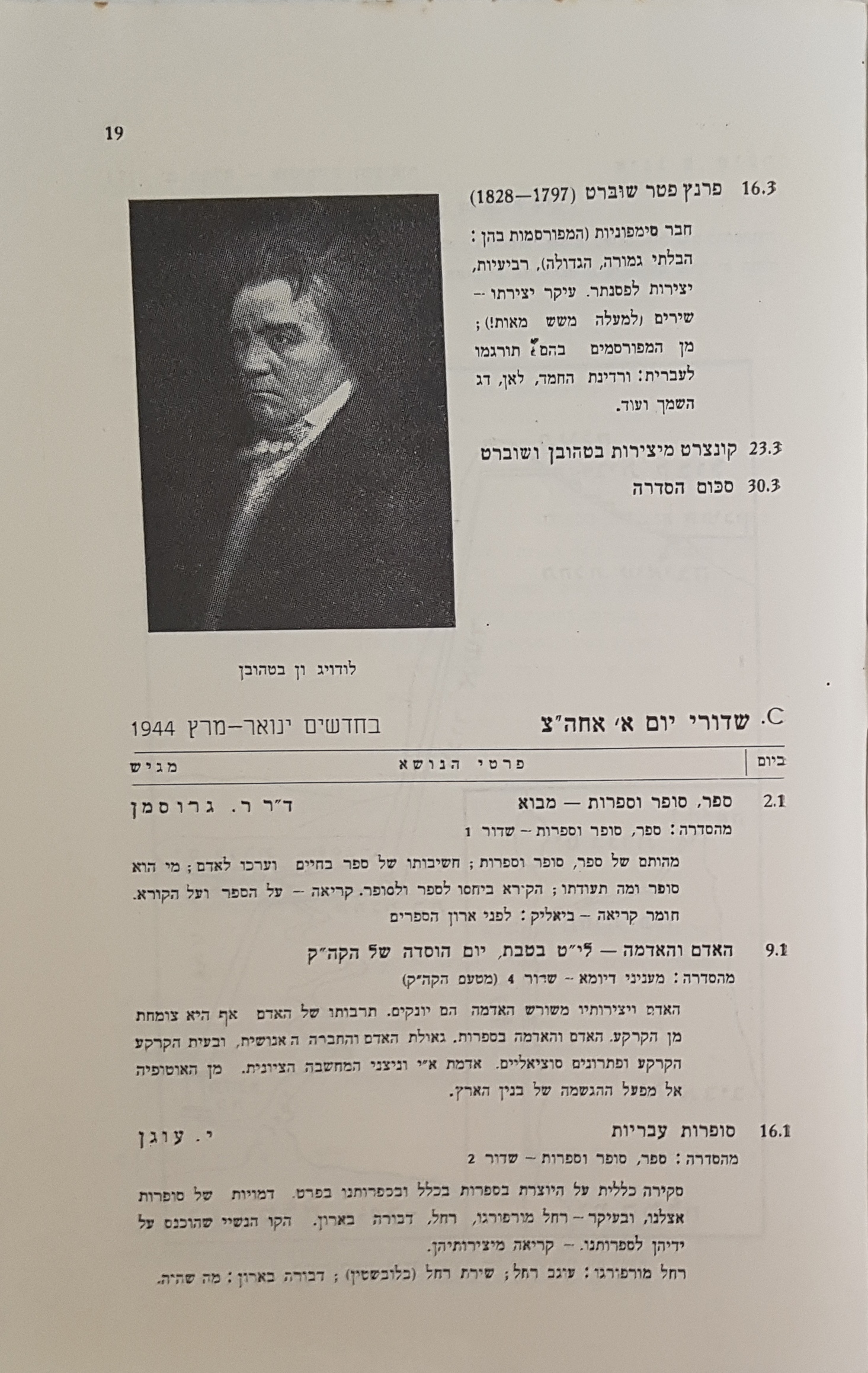
|
|
Hasket V' Haskel ("Listen and Learn") January- March 1944, page 18.
|
Hasket V' Haskel ("Listen and Learn") January- March 1944, page 19.
|
Yet another series she edited was "Songs tell the story".It was presented by M. Bronzaft.
Music, Theater and Public Diplomacy: Hadassah Sherman
Musical Theater was also a new genre gaining popularity in the 1930s and 1940s both in the theatre and movies. So should not be totally surprising that Palestinian culture at that time should also participate in this wave.For example, one of the plays performed by Habima at the time, in 1945, was a play by David Bergelson "I Shall Not Die, But Live" (לא אמות כי אחיה). The title is taken directly from the Hallel prayer (Psalm 118 ,verse 17). An aside, I think, this theme is echoed in the last line of Arthur Miller's famous play, "All my Sons" (1947) when Mother (wife of Joe Keller, tells her son, Chris, "Don't dear. Don't take it on yourself. Forget now. Live. (Chris stirs as if to answer) Shhh... (She puts his arms down gently and moves towards the porch.) Shhh... (As she reaches porch steps she begins sobbing.) CURTAIN.
However, "I shall Not Die, But Live", was less like "All my Sons " and more like the Threepenny Opera, by Bertolt Brecht and Kurt Weill, that is a "play with music". A copy of the original play at Tel Aviv University. The actors had to get music lessons, and who better to teach them music than Hadassah Sherman. Hadassah was a music teacher at the iconic Gymnasia Herzlia, Tel Aviv. Hadassah could also be regarded as one of the first female conductors of an orchestra/choir in Eretz Yisrael (Palestine).
Habima theatre, even before it opened its doors in its new premises in Tel Aviv, to the public, opened up a new school for young actors, located in same building. A two-three year acting course, that would give Habima a reservoir of young actors. It started with 20 actors (10 male; 10 female). The story can be seen in Hagalgal, volume 2, issue No. 29, page 16 (April 12, 1945)
Two years later, Hagalgal magazine (volume 5, Issue No. 11, pages 12-13: October 9, 1947) in an article entitled "From the Benches of the Studio to the stage of Habimah: Young actors of Habimah studying and performing" gives us a glimpse into the courses these young actors were being taught, one of these courses was "solfege," the sol-fa syllabus, by Hadassah Sherman.
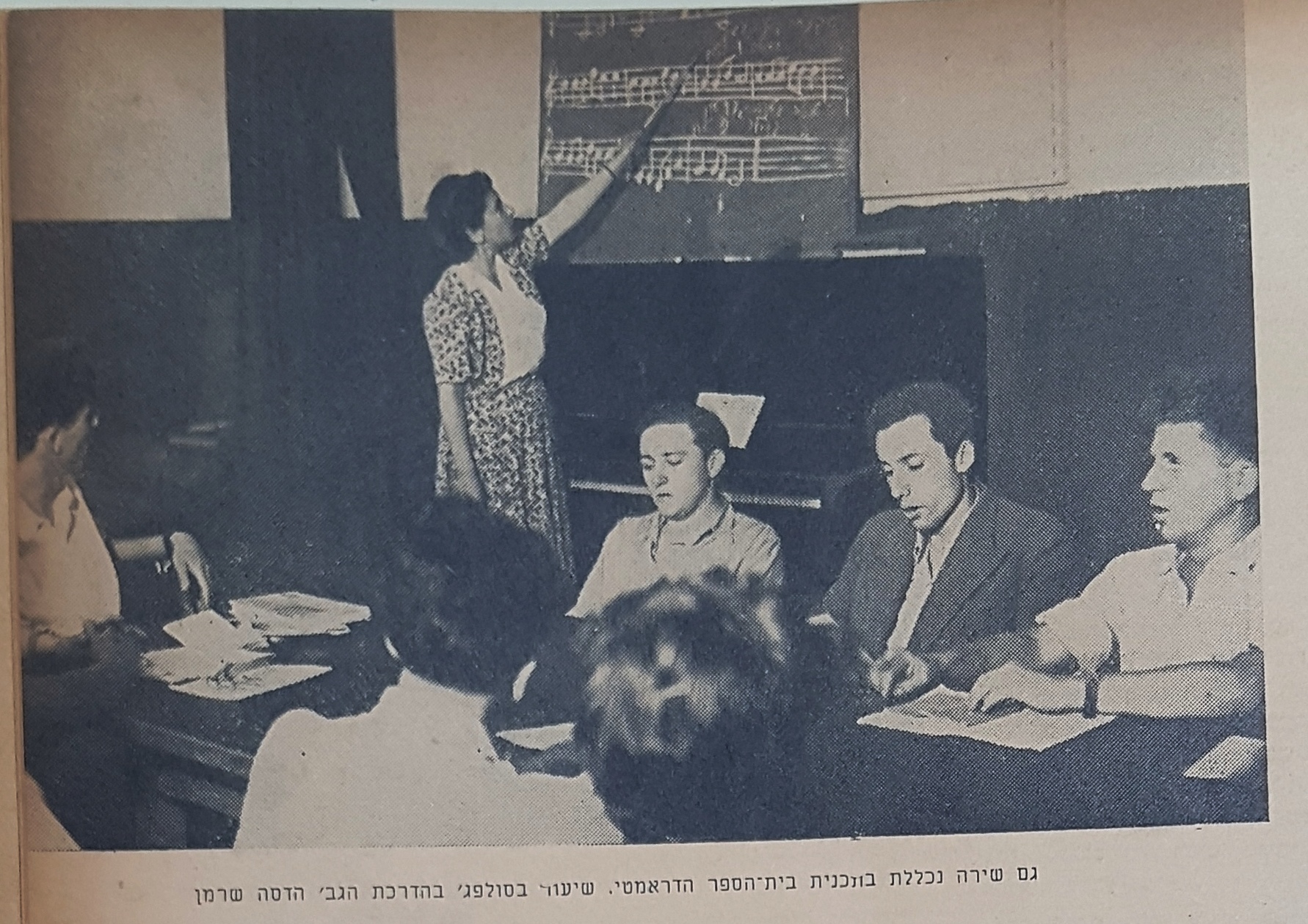
|
| Hadassah Sherman teaching Solfege to drama students at Habima's School for young actors. |
Hadassah Sherman also self-published a set of pamphlets for her music classes at the Herzliya Gymnasia, One of the pamphlets (no. 12) , entitled "Revenge" or "Vengeance"(נקם) is of particular interest here. It has three songs from the play "I Shall Not Die, But Live." The composer of the songs was Alexander Uriah Boskovich, the lyrics by Avraham Shlonsky.
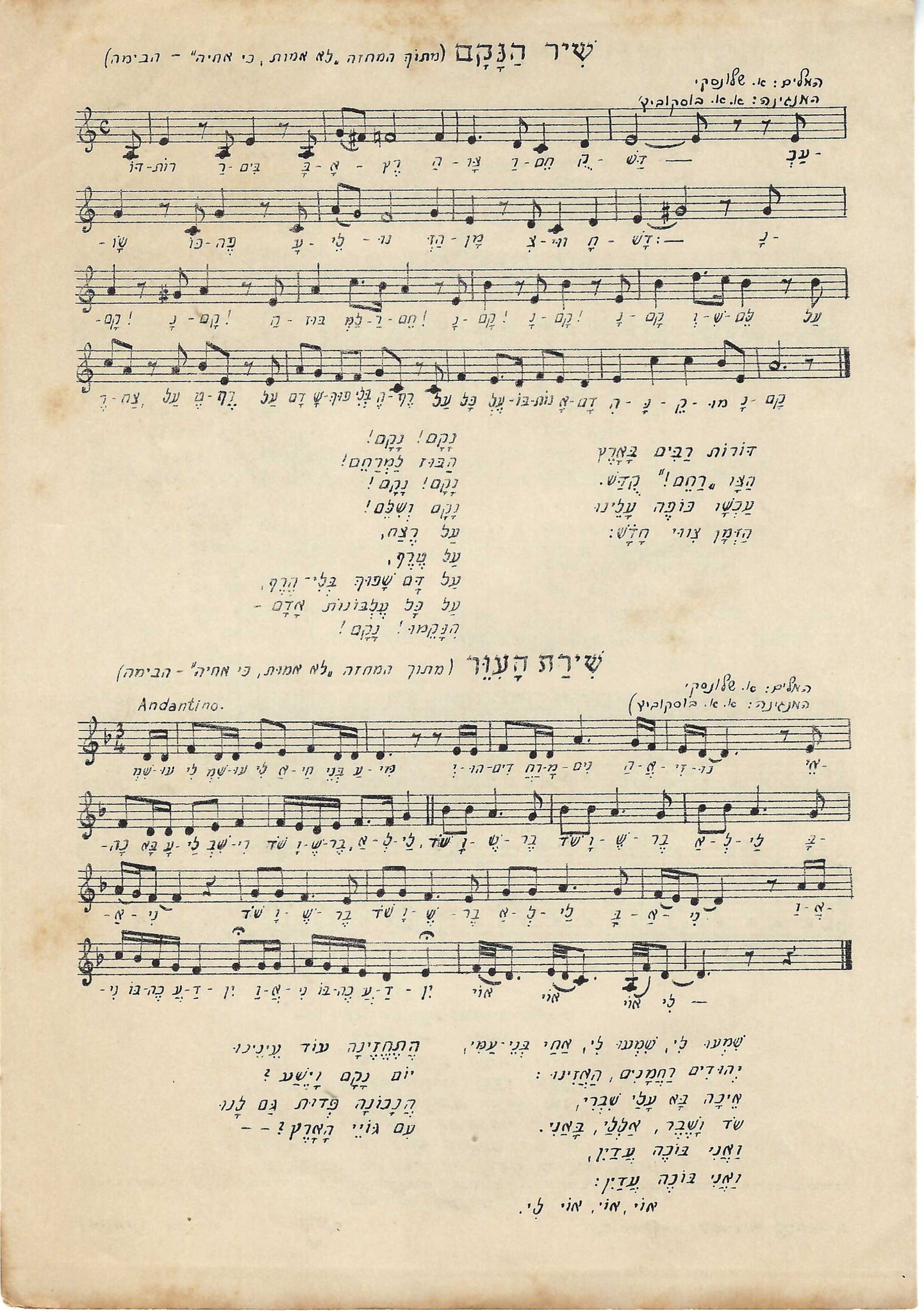
|
| Two songs from the play "I Shall Not Die, But Live" that were performed in Habima theatre. |
Two of the songs appear in Zemereshet, modern versions. One of the songs is quite uplifting. It could be translated as "A vulture over our fields". The other song, "The Blind Man's song"" is what you would call, using a Scottish term "a right dreich song!", really dark, depressing and miserable, like a cold rainy day in summer. We like to go to plays in Israel to be depressed for some reason, (probably to remember the destruction of the temple). But in this case the full horrors of the holocaust hadn't come out yet, what was known was bad enough. Entertainment for its sake was out of the question.
So here are these two songs that survive the passage of time. This version of the song "The blind man's song", unfortunately, starts in the second verse.
|
שירת העיוור מתוך אתר זֶמֶרֶשֶׁת https://www.zemereshet.co.il/player/mobile_wide.asp ביצוע: אינה גולדנשטיין פסנתר: מרק לברי שנת הקלטה: 3.2.1952 המבצעת שרה את הבית הראשון והשני. מתוך: אוסף תקליטי השידור של קול ישראל בארכיון הצליל בספרייה הלאומית שִׁמְעוּ לִי, שִׁמְעוּ לִי, אַחַי בְּנֵי עַמִּי יְהוּדִים רַחְמָנִים, הַאֲזִינוּ: אֵיכָה בָּא עָלַי שִׁבְרִי שֹׁד וָשֶׁבֶר, אַלְלַי, בַּאֲנִי וַאֲנִי בּוֹכֶה עֲדַיִן. וַאֲנִי בּוֹכֶה עֲדַיִן: אוֹיָה לִי, אוֹיָה לִי וְכַאֲשֶׁר אֶת בְּנִי בְּכוֹרִי שָׁחֲטוּ, בְּנִי בְּכוֹרִי שָׁחֲטוּ, הָיָה עַל פְּנֵי בֵּיתִי בֵּין הַקַּרְפָּטִים יוֹם שֶׁל קַיִץ, יוֹם שֶׁל קַיִץ מִמֶּרְחָק זוֹרֵחַ. וַאֲנִי בּוֹכֶה עֲדַיִן. וַאֲנִי בּוֹכֶה עֲדַיִן: אוֹיָה לִי, אוֹיָה לִי
מתוך הצגת "הבימה" "לא אמות כי אחיה".
|
|
שיר הפרטיזנים (עיט על שדותינו) מתוך אתר זֶמֶרֶשֶׁת
מילים: אברהם שלונסקי (לחנים נוספים לטקסט זה) ביצוע: זמרדעי זמרשת שנת הקלטה: 26.1.2009
מקור: אתר זֶמֶרֶשֶׁת
הקול השני בולט יותר מהקול הראשון.
|
The music score and lyrics are here but, unfortunately, I haven't yet located any sound recordings of this particular piece of music
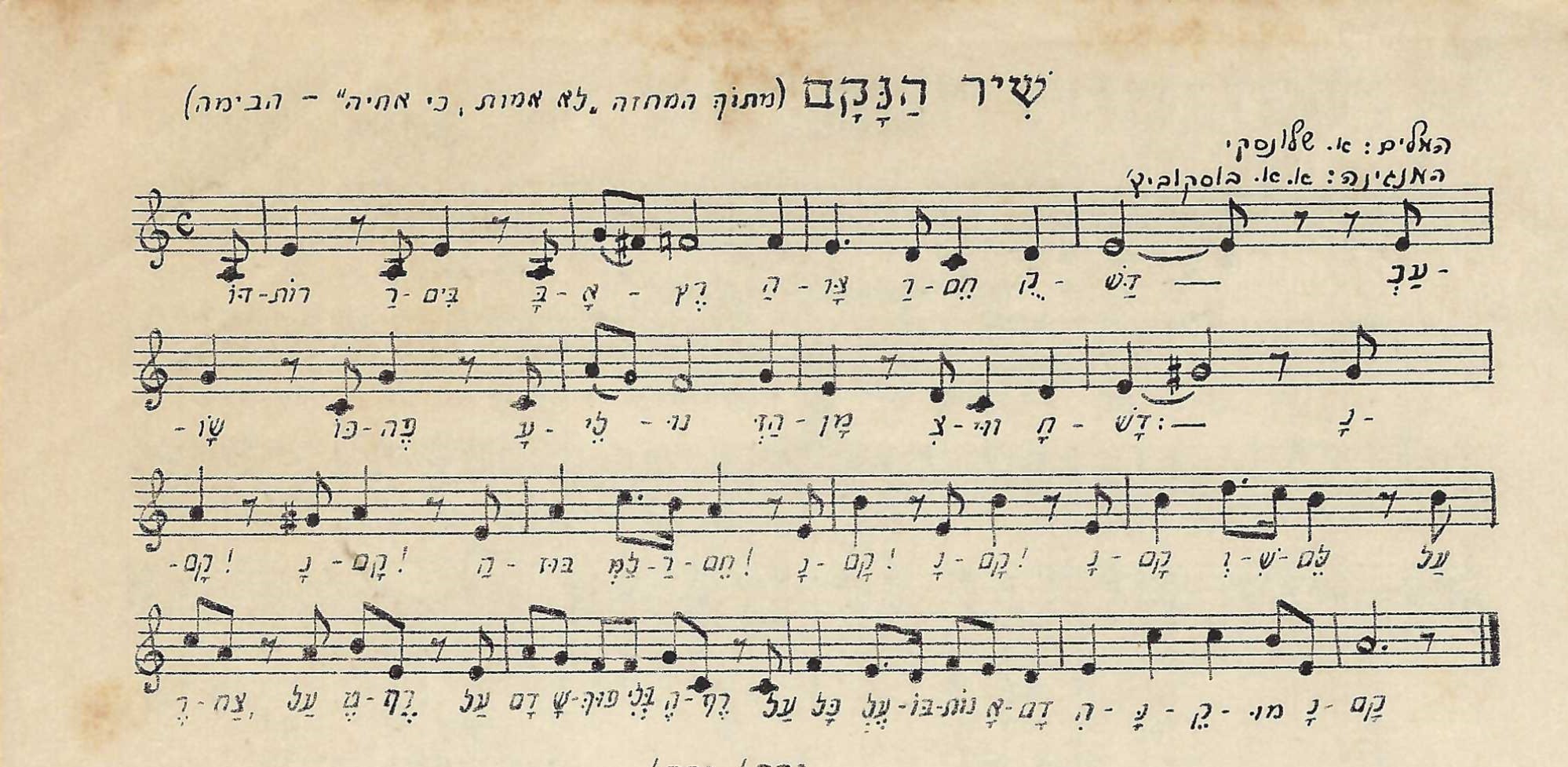
|
|
Shir Hanakam
Song of Vengeance |
Hadassah Sherman also was heard regularly on PBS radio programs. In particular in the Hebrew Children's Hour.
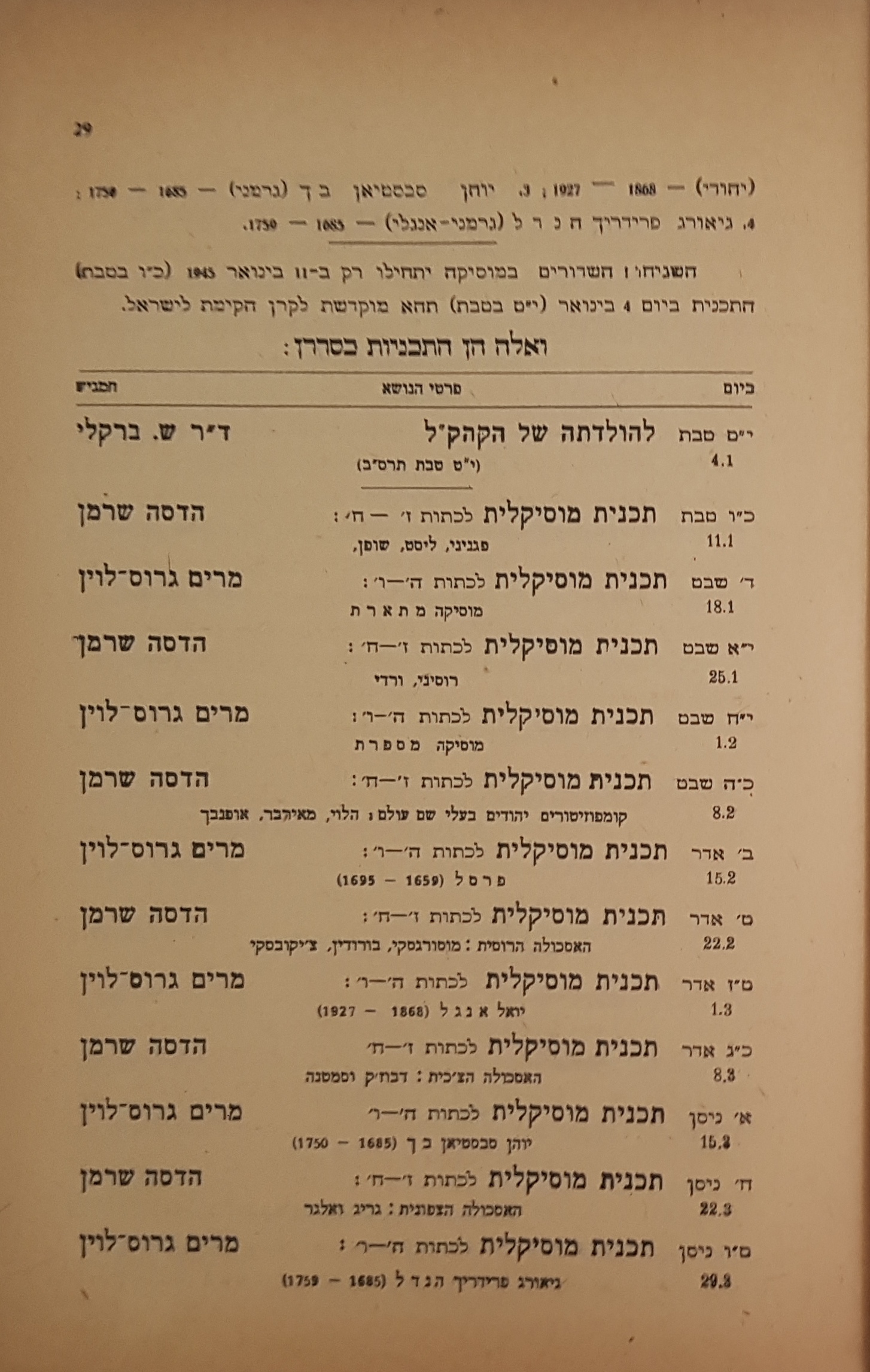
|
| A page from the "Listen and Learn" (Hasket V'Haskel) pamphlet, January- March 1945, page 29 which lists the programs that Hadassah Sherman presented during these months. You can see from the list that she had a program every other week. The alternative music programs during that period were presented by Miriam Gross-Levin. |
The times and number of musical programs were limited in the radio, and there was no shortage of local talent. So competition as to who presented what programs must have been quite fierce. Another rival talent for these slots was Jocheved Dostrovsky.
The Structure of PBS
"From 1936 to 1945, The PBS was part of the Department of Posts and Telegraphs, under the administrative direction of the deputy PMG [Postmaster General] who also supervised the radio engineering services. The program director in the early years, had been seconded from thr BBC in London. These directors included Randall, Stephen Fry and Crawford B. McNair. ...
The PBS was divided into a number of sections, three of which were determined by the language used - English, Hebrew and Arabic (including Arabic music). Two more dealt with the nature of the programmes, regardless of languages: news (in English, Hebrew and Arabic) and music (for both Hebrew and English programmes). There were two further common services - engineering (under the GPO) and administration, making seven sections in all..."
From A Lifetime in Jerusalem, by Edwin Samuel.
For music to be enjoyable the quality of the service had to be probably a lot better than it was. The quality was based both on the technology of the transmitter and the quality of radios receivers. Music was at that time best heard via 78 RPM acetate records locally produced or imported, to be heard on imported gramophone players. Although to most people in Palestine that was a luxury they could not necessarily afford. PBS hired studio musicians, Jewish and Arab, to perform in the studios.
The PBS was made up of 120 permanent staff members (apart from a further 60 GPO transmitter and studio engineering staff). The PBS studio orchestra, or more accurately chamber orchestras, were made up of some 15-20 full-time employees of many years standing. Further research is needed to find out what proportion of the programs were actually live performance and what proportion pre-recorded.
Arab musicians: The Studio Group (Leader: Jamil 'Aweis (Violin); Mohammed Atia (Kanoun); Ramez Al Zagha (Oud); Artin Santurji (Santur); Jalil Rukab (Violin); Tewfik Jowharieh (Nay); Basil Sarwa (Tambourine).
Jewish Musicians: Hans Schlesinger (conductor); Arieh Erich Sachs (piano); Rafael Kagan (Cello); Moshe Lustig (piano, harpsichord); Karl Beren (clarinet); Eliyahu Turner (Oboe) Wihelm von Bleize (flute); Meir Frankel (violin); Uri Toeplitz (flute), among others.
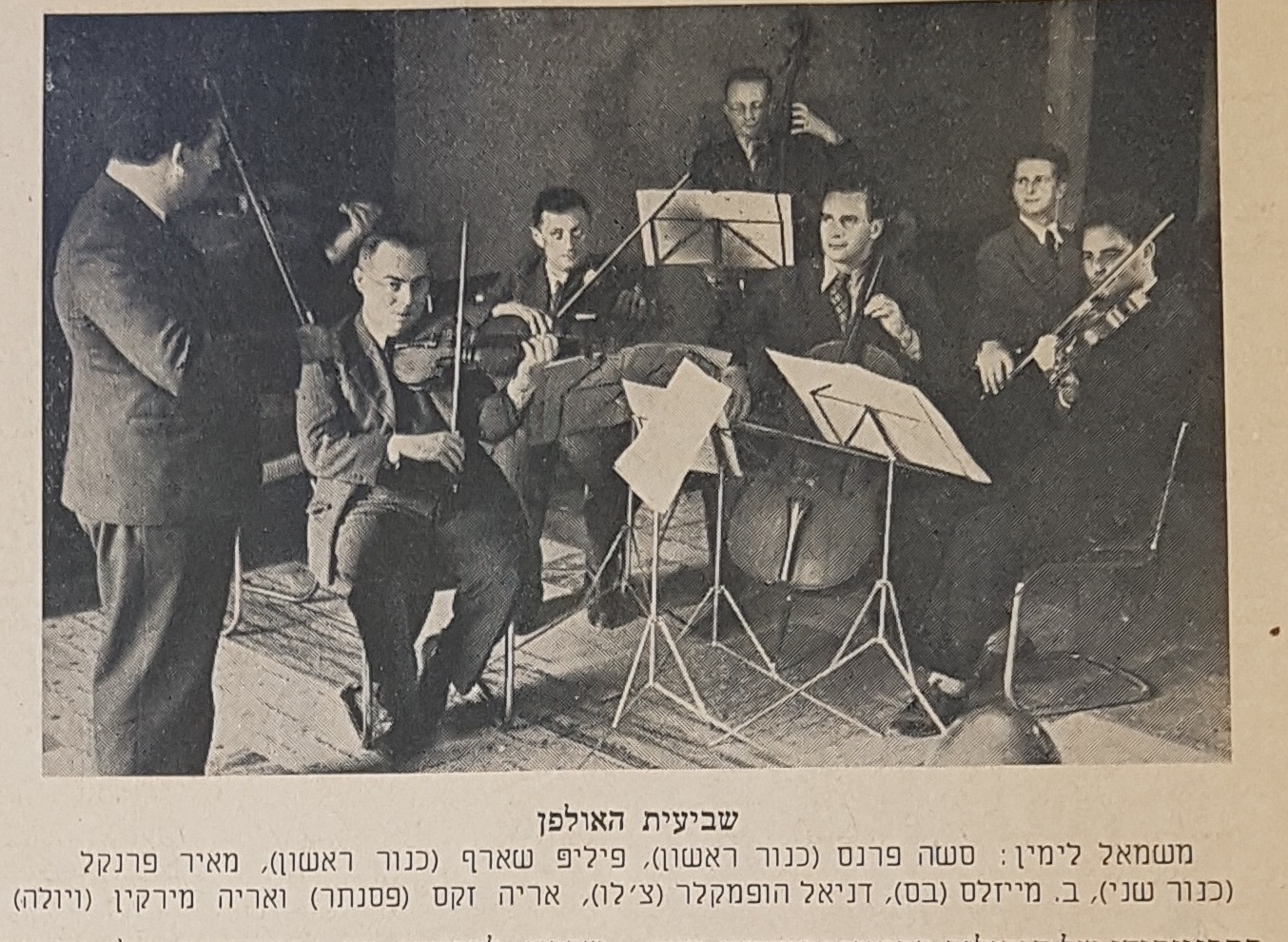
|
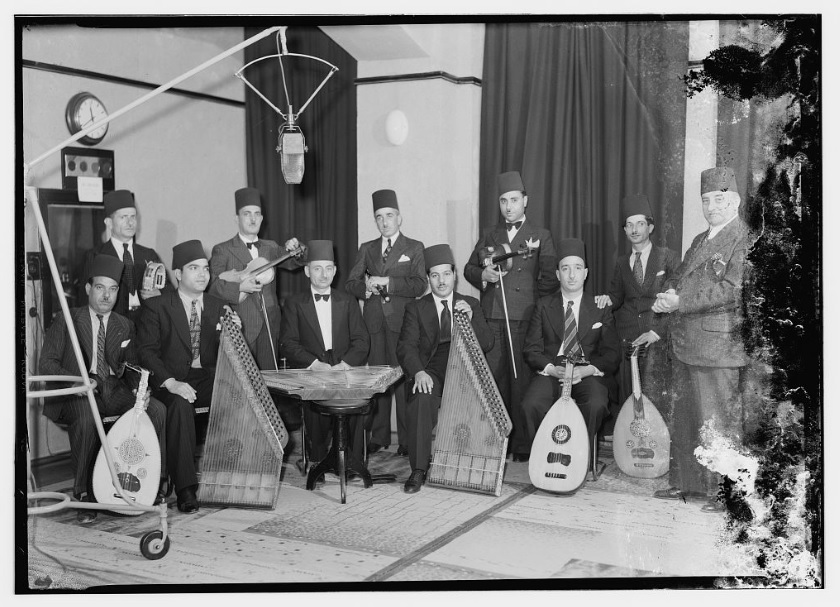
|
|
The PBS Septet, one of the permanent musical organizations of the Jerusalem [radio ] station, adorns the English cover-page this week. From left to right in the picture Sascha Parnes, Leader violin; Philip Scharf, first violin; Meir Frankel, second violin; Bernard Maisels, bass; Daniel Hofmekler, cello; Arieh (Erich) Sachs, piano; and Arieh Mirkin, viola. "A fine group with infinite possibilities, the Septet plays regularly throughout the week on the PBS in many of the musical programmes." The picture is by Kamnetzky Photo Studio, Jerusalem.
Photo appears Jerusalem Radio . |
Photograph shows an Arab Tahkt group. Seated left to right: Yahya al-Suʻudi singer and oud; Egyptian qanun player; Arteen Santurji, santur; Ibrahim ʻAbdel-ʻAl, qanun; and Ramiz al-Zagha, oud. Standing right to left: Jamil ʻUwais, Yusuf Radwan, oud, Jalil Rukab, violin; Tawfiq Jawhariyya, flute; and Baseel Sarwa, riqq. (Source: Jerusalem interrupted: modernity and colonial transformation 1917-present / ed. Lena Jayyusi. Northampton, MA: Olive Branch Press, 2010, p. 70) Note: variations in spelling of names of personalities and instrument names adds to barriers in locating more information on them. |
Pre-recording had obvious advantages to the quality of the music heard by the listener. Rehearsals could iron out most/all the mistakes before going on the air. Also if the program was delayed for any reason, and there were many reasons why programs were delayed or had to be rescheduled, this could be done without too much effort.
At one point, PBS reportedly had a library of something like 18,000 recordings of music, speeches and other programs! The recordings were in the format of fragile acetate discs/records (78 RPM), many were either brought over from Britain, music and/or speeches, or recorded locally and archived in the PBS library, for broadcasting purposes.
Studio recordings available to the public: Further research is needed to locate, list and digitize the recordings that still exist in public archives or private collections. The National Library of Israel has started to digitize its collection. Hopefully something will emerge from this...
Regarding the quality of transmission of the spoken word, the President of the Brighter English League, a fictitious organization created by Edwin Samuel, said humorously, in his one of his broadcasts entitled "Let's Speak English", August 14, 1939: "I'm never quite sure whether listeners can follow clearly what I say. One listener came up to me the other day and told me how much English he'd learned from my talks. But he must have been using a cheap wireless set which made lots of noises which he thought were part of the English language. He talked to me like this: 'Mr. President, (click, click! ) see how well (whistle) I speak English'. "
The same Edwin Samuel, before taking up the position of director of PBS, in May 1945, wrote to Wing Commander A. H. Marsack, BBC offices, Cairo, requesting that he send him some of the Arabic recordings made by him for short wave programs for the BBC. "Could you make for us [Edwin Samuel and Azmi Nashashibi (MBE), Controller of Arabic Programmes] duplicate copies of any such recordings in the future? If so what would be the cost of each? How many such recordings are made each month and how many are Koran, music, talks, etc? Nashashibi is particularly interested in songs from the latest Arabic cinema films... one important point is that of copyright. We would presumably need the expressed rights of the artists that the recordings could be broadcast from the PBS without payment of any additional fee by us..." (1)
In another letter, Edwin Samuel wrote to Rex Keating , broadcaster at the Egyptian Broadcasting Service, in Cairo, who was shortly to becoming Samuel's deputy director : "Our existing blank records are old stock and do not wear well after recordings have been made.
We have a large supply of new blank records on order from the United Kingdom but they may take some time to arrive.
Meanwhile, are you in a position to sell us some blank records of recent manufacture, or to lend us some on the understanding that we will repay any kind as soon as our new ones' arrive? If so, please let me know the specifications, the quantity available (and the price)..."(2)
Experimenting with Multitrack recording in the studio
Somehow the musical director and presumably the studio recording engineers found time or maybe made time in the busy schedules for experimentation in what would become the new concept of multitrack recording, in 1946, before the advent of tape recording.
"Rex Keating: ... That was in 1938.
During the same year the PBS Light Orchestra was re-organized. Foundations were laid of the orchestra that listeners know today.
That was the PBS orchestra as it was eight years ago. Then as now, the musical director was Karl Salomon, an admirable musician with a strongly developed sense of humor. Here it is in action. Karl Salomon singing all the parts of a vocal sextet.
This may sound miraculous, but in fact is simply a matter of patient and careful technical trickery and timing. All the parts are recorded separately and then re-recorded on a single disc.
FromThe First Ten Years, Rex Keating, broadcast March 30, 1946. (From Rex Keating Collection, 2/6/1, MEC Archive, St. Antony's College, Oxford).
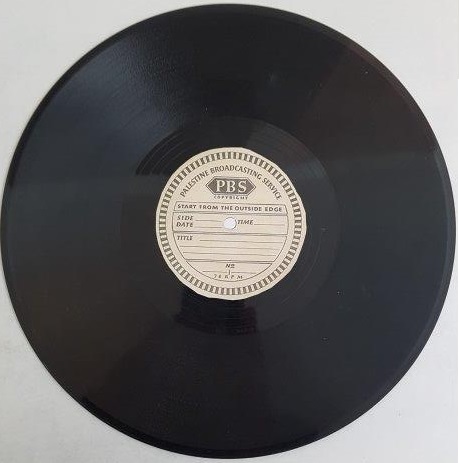
Photo reconstruction, for illustrative purposes only, of an acetate record with PBS label.
|
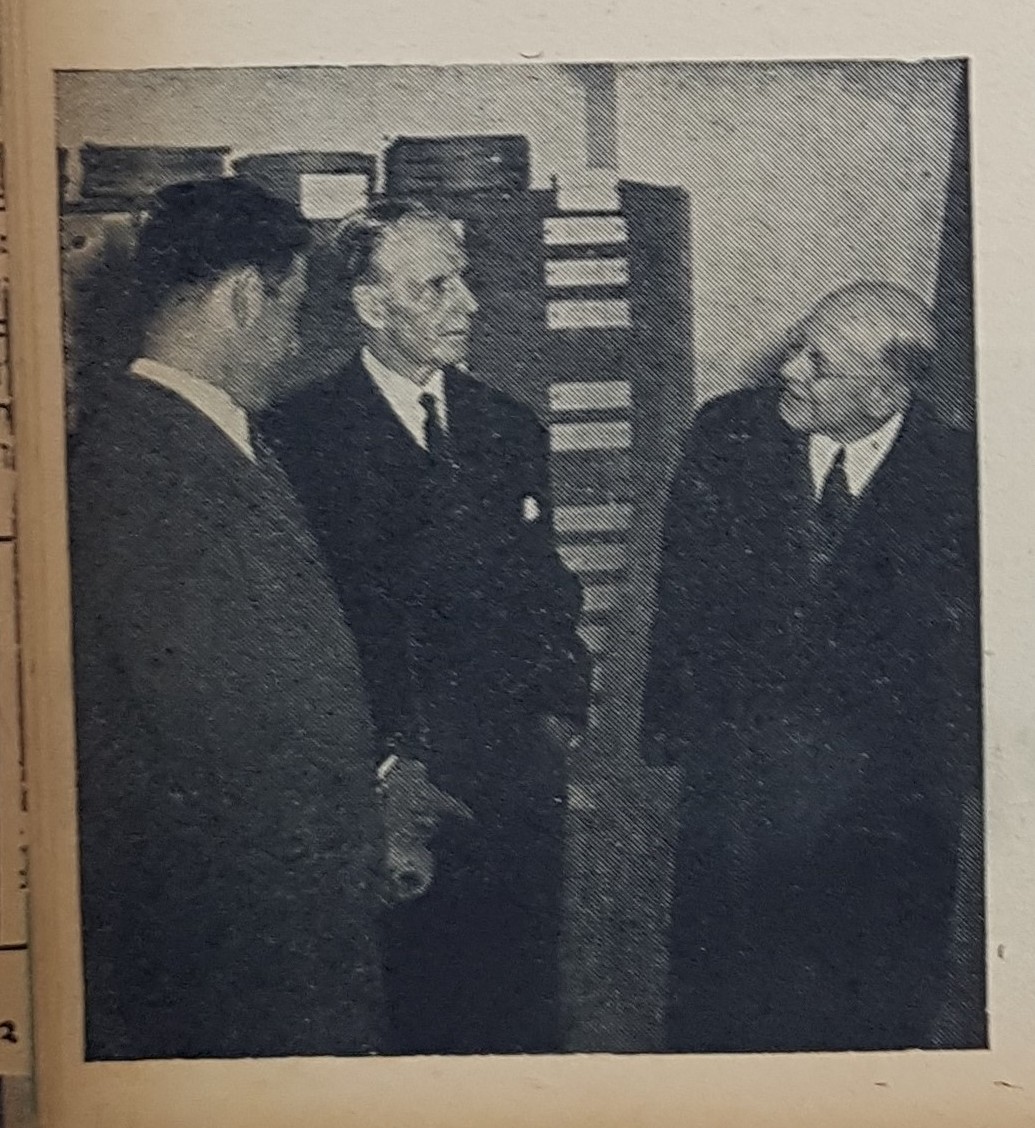
From left to right. Edwin Samuel, Director of PBS; William Phillips, a career United States diplomat; and Dr. Frank Aydelotte, Director, Institute of Advanced Study in Princeton, New Jersey. Photo taken in the record library during an official visit to the PBS studio in Jerusalem, 1946. Phillips and Aydelotte were there as members of the Anglo-American Committee of Inquiry on Palestine. (Photo appeared in Hagalgal, vol 3, no.35, March 28, 1946, p11).
|
What happened to all these recordings? A handful has been preserved in the Rex Keating Collection, British Library, London, and St Anthony's College, Oxford, but most have completely disappeared from sight. Acetate discs are fragile, so many may have been broken in the final days of the studio, May 1948. Some may have been taken as "souvenirs", see article "I capture the Public Information Office Bell ..." by Theodor F. Meysels, Palestine Post May, 1948. Hopefully that there are still some recordings out there somewhere, preserved in private or public collections. Unfortunately, there is no known list locating their whereabouts.